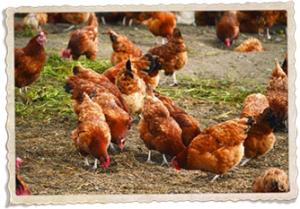There are several predators that will attack, and likely kill, the chickens in your backyard if you’re don’t take appropriate steps to protect them. We have already highlighted a variety of chicken predators on our blog but you can now add raccoons to that list.
Raccoons are yet another predator that you need to look out for when it comes to protecting your chickens.
Raccoons can often be found rummaging around near chicken coops and will look for any opportunity to strike at a moment’s notice. Identifying a chicken that was the victim of a raccoon attack is easy. If you find a chicken next to a coop or near a pen with its head missing, it was likely attacked by a raccoon.
Raccoons are known to reach inside of chicken pens, grab chickens by the head, and pull them out through wire fences. Often, chickens’ heads will come off when this happens, leaving their bodies behind. Raccoons are also known to bite the backs of chickens and tear through their necks and breasts while eating them.
In addition to going after chickens, raccoons will occasionally go after chicken eggs. Typically, you’ll find empty shells located inside and near chicken nests when a raccoon is to blame for missing eggs. You may also find coarse hair scattered around near the opening of a coop when a raccoon has been inside of it.
There are some simple steps you can take to protect your chickens from raccoons. Because raccoons have paws that work like human hands, it’s important to use things like snap hooks and carabiner clips to stop them from being able to open latches and gates. It’s also important to avoid allowing chickens to roam too early in the morning or too late at night and to put up fencing around a chicken coop that isn’t wide enough for a raccoon to reach right through.
You should also clean up your chicken coop and remove anything that might attract raccoons. Raccoons are scavengers that will often go after anything edible. If you keep your chicken coop clean, they’re less likely to come around sniffing for food.
If you have any questions about how to protect your chickens further, contact Chickens for Backyards at 888-412-6715 today. And make sure you come back soon to read other blog posts about dealing with the most common chicken predators.

